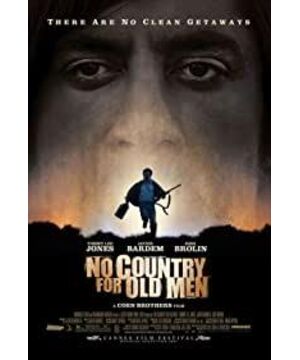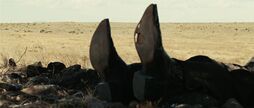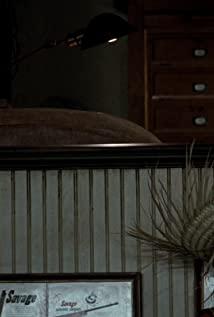The many confessions and dialogues of the old policeman in the film actually echo each other, and the logic is very rigorous. As soon as he came up, the old policeman showed what he valued and what he was confused about. Several generations of people have been the police to make him proud, but the current law and order (older generations don't even need to bring a gun) and criminal psychology (young people carefully planned murder) have made him difficult to understand. In conversations with young policemen, this incomprehension of the status quo is also shown from time to time. For example, they are surprised by criminal methods (with wounds on the forehead but no bullets); confusion about whether the murderer will stop and when they will stop, and the incomprehension of why criminals want to torture the victim. There is no doubt that this is a state of total loss of control, and it is no wonder that towards the end of the movie, he said in a conversation with a friend (?) that I was exhausted.
From the beginning of a vow to catch the murderer, to the feeling that he was a ghost, and even finally when he opened the door of 114 and found that the criminal had escaped and let out a long sigh of relief, it is not difficult to find the subversion in it. It is obvious that there is no alternative or even escape from the traditional values. When Bell was drinking coffee with an old policeman in another place, we couldn't see the loss of this traditional sense of value more clearly. The young man with green hair and nose ring no longer called the age of Mr. and Ms. However, this is the trend. Even if you add a "sadness" attributive in front, it will not change the arrival of this era of "disintegration of courtesy and happiness". What do people commit crimes for? Why is there evil without humanity? Will justice triumph over evil? The value of this era has undergone tremendous changes unknowingly. As for the old policemen, they were confused and even unreasonable.
What is even more sad is not only the changes in the world, but also the shaking of the traditional values that they have always adhered to. I have seen a lot of film reviews, and no one mentions the part of Bell's dialogue with that friend, which feels a bit strange. This is actually the most straightforward finishing touch of the movie. The director said slowly through the mouth of that friend: "This country treats the people very harshly. You can't stop what's going to happen. No one will care about you. Everything is empty." After the friend became disabled by the police, Life is very desolate (coffee is brewed once a week). Uncle Mike died heroically and was buried the next day. And his badge and so on, he still needs that friend to send it to the police station in person, and the idea of the museum is his own. In fact, almost no one would care about it after death. The country will not. Those glory and those names are actually vanity.
Therefore, for Bell, resignation is the best choice. Because if you continue to do it, you can only get farther lost. Just let him retreat to his own world, or ride a horse. This man who has lived in tradition all his life is thinking of following in his father's footsteps in his dream.
However, everything is actually a dream. And dreams will eventually wake up.
This ending is not the inexplicable abrupt end that people think, but the meaningful one.
Add another experience: the
ruthless killer Chigurh is actually "very principled." He killed people like hell, so the few people who survived were very noteworthy: one was the owner of the commissary, he guessed the coin correctly, and the killer obeyed his own rules; the other was a fat woman who sharpened her nails (the landlord of Moss?), She blatantly contradicted Chigurh, but survived because she was also "very principled." However, this assassin who lives strictly in his so-called "principles" also sometimes stumbles (in a car accident). He drove well, but was almost killed by a car that didn't follow the rules. Some film critics say it has meaning, and I agree with it.
So many characters in the movie, including Moss and Chigurh, are all destiny. When Moss took the 2 million for a moment of greed, when Chigurh decided to chase Moss, when the retired colonel agreed to take over, even when the boss was in the drug business...too many things are involuntary. . When I watched it, I was sighing. Because of the money, I was worried and seriously injured. In the end, money is no longer even at work, but it is almost purely a ruthless pursuit of fate. What is the significance of all this? ? It’s no wonder that the fat old policeman sighed: “Money and drugs are more than everything.” Moss and Chigurh borrowed clothes from the youth and gave them money, and they both accepted it, especially after Chigurh gave the two young people money, they paid back for the distribution of the money. There was a quarrel. All this seems to confirm that sentence, and it seems to portray a sad reincarnation.
View more about No Country for Old Men reviews










